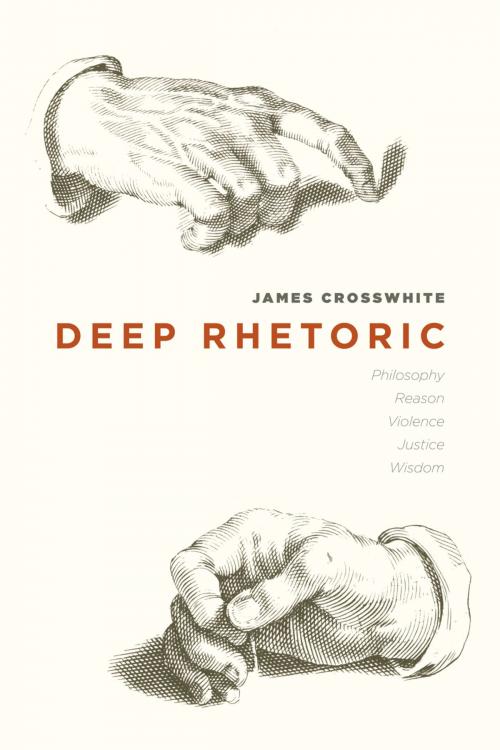Deep Rhetoric
Philosophy, Reason, Violence, Justice, Wisdom
Nonfiction, Reference & Language, Language Arts, Public Speaking, Rhetoric, Fiction & Literature, Literary Theory & Criticism, Religion & Spirituality, Philosophy| Author: | James Crosswhite | ISBN: | 9780226016511 |
| Publisher: | University of Chicago Press | Publication: | April 1, 2013 |
| Imprint: | University of Chicago Press | Language: | English |
| Author: | James Crosswhite |
| ISBN: | 9780226016511 |
| Publisher: | University of Chicago Press |
| Publication: | April 1, 2013 |
| Imprint: | University of Chicago Press |
| Language: | English |
“Rhetoric is the counterpart of logic,” claimed Aristotle. “Rhetoric is the first part of logic rightly understood,” Martin Heidegger concurred. “Rhetoric is the universal form of human communication,” opined Hans-Georg Gadamer. But in Deep Rhetoric, James Crosswhite offers a groundbreaking new conception of rhetoric, one that builds a definitive case for an understanding of the discipline as a philosophical enterprise beyond basic argumentation and is fully conversant with the advances of the New Rhetoric of Chaïm Perelman and Lucie Olbrechts-Tyteca.
Chapter by chapter, Deep Rhetoric develops an understanding of rhetoric not only in its philosophical dimension but also as a means of guiding and conducting conflicts, achieving justice, and understanding the human condition. Along the way, Crosswhite restores the traditional dignity and importance of the discipline and illuminates the twentieth-century resurgence of rhetoric among philosophers, as well as the role that rhetoric can play in future discussions of ontology, epistemology, and ethics. At a time when the fields of philosophy and rhetoric have diverged, Crosswhite returns them to their common moorings and shows us an invigorating new way forward.
“Rhetoric is the counterpart of logic,” claimed Aristotle. “Rhetoric is the first part of logic rightly understood,” Martin Heidegger concurred. “Rhetoric is the universal form of human communication,” opined Hans-Georg Gadamer. But in Deep Rhetoric, James Crosswhite offers a groundbreaking new conception of rhetoric, one that builds a definitive case for an understanding of the discipline as a philosophical enterprise beyond basic argumentation and is fully conversant with the advances of the New Rhetoric of Chaïm Perelman and Lucie Olbrechts-Tyteca.
Chapter by chapter, Deep Rhetoric develops an understanding of rhetoric not only in its philosophical dimension but also as a means of guiding and conducting conflicts, achieving justice, and understanding the human condition. Along the way, Crosswhite restores the traditional dignity and importance of the discipline and illuminates the twentieth-century resurgence of rhetoric among philosophers, as well as the role that rhetoric can play in future discussions of ontology, epistemology, and ethics. At a time when the fields of philosophy and rhetoric have diverged, Crosswhite returns them to their common moorings and shows us an invigorating new way forward.















